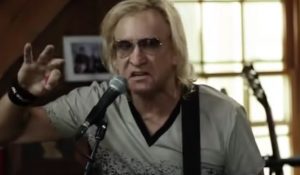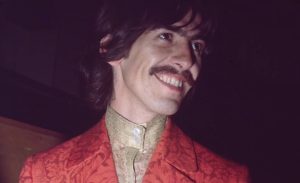Motörhead Shares 1983 Live Performance Of “One Track Mind”

via Motörhead Official / Youtube
In anticipation of the 40th anniversary reissue of their controversial album Another Perfect Day, Motörhead’s official social media accounts have announced an unreleased live version of “One Track Mind”.
This particular performance took place on June 22, 1983, at Hull City Hall in England. Notably, this was a pivotal moment for the band, marked by the departure of “Fast Eddie” Clarke and the introduction of Brian Robertson from Thin Lizzy as his replacement.
Motörhead was riding on the popularity of their most successful fourth album Ace of Spades which was followed by their EP St. Valentine’s Day Massacre and the UK No. 1 live album No Sleep ’til Hammersmith, but a head-scratching collaboration with the Plasmatics will prompt the departure of Clarke.
Another Perfect Day was another absurd decision on the band’s part due to its unique style, but some fans and critics later found the genius and charm of the album. Listen to the live version of “One Track Mind” below:
An extended special treatment for Another Perfect Day
In honor of the 40th anniversary of the sixth addition to Motörhead’s discography, Another Perfect Day is set to receive special treatment with new deluxe editions scheduled for release on November 3, 2023.
These deluxe versions will come in the form of hardback book-packs, available in both two-CD and triple LP formats. They will include a mind-blowing remastered version of the original album, previously unreleased demo tracks as a bonus, and an exclusive, unreleased full concert recording from Hull City Hall on June 22, 1983.
Additionally, the package will feature the album’s backstory and a collection of previously unseen photographs. Furthermore, there will be a limited-edition release of the original standalone album in a striking blue-and-black swirl vinyl format.
Another Perfect Day remained a unique entry in Motörhead’s discography since it’s the sole album to feature Robbo” Robertson, which is also the reason why the album sounded so different from the other full-tilt ferocious outings.
“Recording Another Perfect Day was f*cking torture”
Following the departure of Fast Eddie Clarke during Motörhead’s Iron Fist US tour in 1982, they enlisted the former Thin Lizzy and Wild Horses guitarists to complete the tour. Drummer Phil “Philthy Animal” Taylor, a devoted Thin Lizzy fan, had strongly advocated for Robertson’s inclusion, a decision initially welcomed by both Taylor and band vocalist and bassist Lemmy Kilmister.
In music biographer Joel McIver’s book Overkill: The Untold Story of Motörhead, Lemmy mentioned that the band’s sound had evolved slightly with Brian’s addition: “[the sound] changed a little now that Brian’s joined the band; I think it’s gotten more musical”.
However, sentiments took a significant turn when they entered the studio with producer Tony Platt. Lemmy would later recall in the Motörhead documentary The Guts and the Glory:
“Recording Another Perfect Day was fucking torture. Brian, he’d take seventeen hours doin’ a guitar track. It f*ckin’ took so long compared with the other albums. And then when it was released everybody f*cking hated it.”
Unique and intriguing (though universally hated)
This album, despite its own characteristics, can be considered a noteworthy release. It deviates from the typical Motörhead sound to such an extent that it only qualifies as a Motörhead album because of Lemmy’s presence as the bassist and vocalist.
The band explores sonic territories that you’re unlikely to encounter on any other Motörhead record. In fact, shortly after the album’s release, when Robertson departed from the band, Lemmy’s outfit refrained from performing any of these tracks live until 2004.
While Ace of Spades is often regarded as the band’s peak, Another Perfect Day is an unexpected misstep on their journey downward. The decision to bring in the flamboyant Robertson was undeniably ill-fated, but it surprisingly gave rise to a unique addition rather than a disastrous one in the Motörhead discography.
The swift separation following the album’s release likely rescued the band, as it became evident that Robbo didn’t quite fit the Motörhead mold. Nevertheless, to his credit, he injected an element of the era’s musical landscape into the band, rendering Another Perfect Day one of the most intriguing albums in their extensive catalog.











